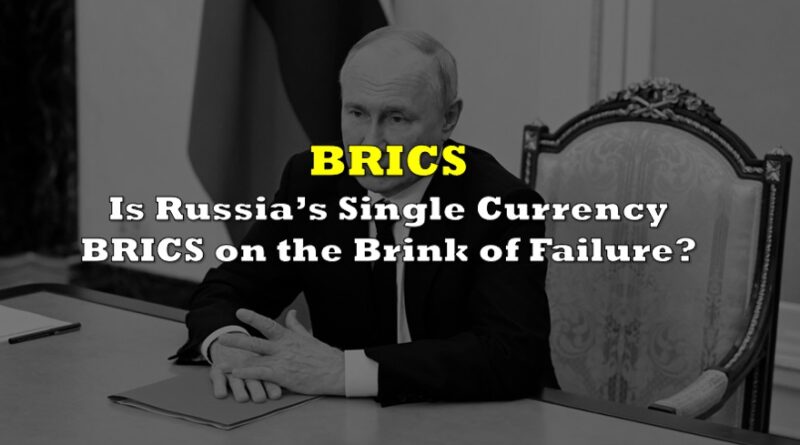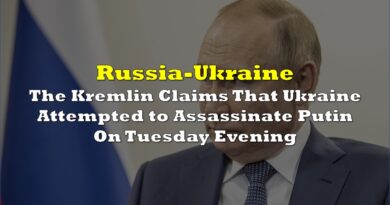Is Russia’s Single Currency BRICS on the Brink of Failure?
The ambitious vision of a “single currency BRICS” championed by Moscow to challenge the dominance of the dollar and bypass sanctions, is being met with skepticism and rejection.
Initiated by Russian President Vladimir Putin shortly after the Ukraine military operation, the goal was to establish a unified trading currency for the BRICS nations to counterbalance the greenback’s global dominance. However, Kremlin spokesperson Dmitry Peskov has recently indicated that the idea might not be feasible in the near future, but the conversation is still underway among experts.
“Many countries are tending to the path of using national currencies in mutual settlements. Certainly, expert discussions are also underway regarding the possibility, feasibility and viability of plans to introduce a national currency of certain integration processes,” he said, as cited by Russian news agency TASS. “Clearly it will be stretched over time and this can hardly be implemented in the near time.”
Still, Peskov emphasized the growing global trend of “de-dollarization”, highlighting that numerous nations are favouring the use of national currencies for mutual transactions. Back in June 2022, Putin had introduced the concept of an “international reserve currency” rooted in the BRICS currency basket, criticizing Western powers for their “irresponsible” macroeconomic choices, including unchecked printing of money and accumulation of unbacked debts.
Months later, Russian Foreign Minister Sergei Lavrov reiterated the significance of the single currency project, pointing out that it would be on the BRICS summit agenda in South Africa. Meanwhile, in a bid to give the proposed BRICS currency tangible value, State Duma Deputy Chairman Alexander Babakov suggested anchoring it with real assets like land and rare earth metals. He contrasted this with the dollar and euro, which he claimed lacked such tangible backing.
Despite these propositions, BRICS partners remained unconvinced. South Africa was the first to dismiss the proposal, with Foreign Minister Naledi Pandor noting the intricacy of global economies and the pitfalls of assuming the plan’s success. Later, India too distanced itself, with Finance Minister Subramanyama Jaishankara emphasizing the country’s focus on bolstering the rupee.
Additionally, the BRICS Development Bank, initially pegged to manage Putin’s currency vision, faced its own challenges. The bank, reliant on dollar funding for two-thirds of its operations, encountered financial isolation following the onset of the war due to Russia’s 20% ownership. Bank head Dilma Rousseff confirmed to the Moscow times in July that the institution was now adhering strictly to sanctions against Russia, terminating its investments in the country.
Information for this story was found via the sources mentioned within the article. The author has no securities or affiliations related to the organizations discussed. Not a recommendation to buy or sell. Always do additional research and consult a professional before purchasing a security. The author holds no licenses.




